“If the ocean has big fish it must also have smaller ones so that they live at the expense of each other. They cannot all be big because in that case they will eat each other and be destroyed,” yesterday this opinion was expressed at the Pressing Club by the director of Arminco, Andranik Alexanyan. During the discussion the “ocean” was the economy of RA and the “fish” were the entrepreneurs. And the main target of the discussion to make sure the ocean is not destroyed.
The discussion on the topic of “Business and free competition” was being facilitated by economic journalist of 168-Zham newspaper, Babken Tunyan. By mentioning that in 1991 Armenia has chosen market model of economy he asked a question to what extent the state provides conditions for free competition.
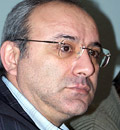 “Armenia is a state, which supports liberalism in the economy. All its policies are targeted at providing conditions for that. Another issue is how successful it does that,” responded the chairman of the ULP faction of NA, Gurgen Arsenyan. As only one representative was present at the discussion from the State Tax Bureau all the participants decided to direct the “gun barrel” on him.
“Armenia is a state, which supports liberalism in the economy. All its policies are targeted at providing conditions for that. Another issue is how successful it does that,” responded the chairman of the ULP faction of NA, Gurgen Arsenyan. As only one representative was present at the discussion from the State Tax Bureau all the participants decided to direct the “gun barrel” on him.
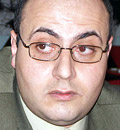 The head of the amendments department of the STB, Arman Zargaryan thinks “indeed there are gaps in the state tax service sector of Armenia and that the administrators has certain shortcomings.” “But it doesn’t mean that the only stimulus of the economy development must be considered the tax sector. I think that a certain legislative environment is formed in Armenia and it seems all that is on a very normal level. However we have issues with refreshment and improvement of that legislation. This legislation lags behind from the economic situation. For the STB besides legislative issues there are also monopoly issues, which hinder the normal development of the country,” mentioned Zargaryan.
The head of the amendments department of the STB, Arman Zargaryan thinks “indeed there are gaps in the state tax service sector of Armenia and that the administrators has certain shortcomings.” “But it doesn’t mean that the only stimulus of the economy development must be considered the tax sector. I think that a certain legislative environment is formed in Armenia and it seems all that is on a very normal level. However we have issues with refreshment and improvement of that legislation. This legislation lags behind from the economic situation. For the STB besides legislative issues there are also monopoly issues, which hinder the normal development of the country,” mentioned Zargaryan.
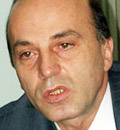 NA Deputy Tatoul Manaseryan was interested what priority directions the STB has fixed and where it envisions the potential of the possible solution of those issues (e.g. shady economy). “Can you tell us your estimation about black economy and what objectives you have?” asked the Deputy. Zargaryan answered that the STB is not an estimator of shady economy although in reality it can do that. The main objective of the STB is the fight against corruption. Zargaryan believes that there are two types of shady economy – shade, i.e. illegal economic activity and hidden registration of property and businesses. “At present the first type – the criminal unregistered business seems not very wide-spread. We have great problems with incomplete registration, the estimation and revelation of which is very hard,” said Zargaryan. “Of course we have targets. The government annually confirms the priority directions for the STB. We cooperate with all international organizations. The main obstacles for us are the absence of the Tax code and the weak leers of the administrative activity. We have a code on inspections, which is a guide for example for both us and the firemen. We have perhaps offered changes in this code for ten times,” mentioned Zargaryan. Tunyan said that if the businessmen don’t work in the shade they won’t be successful. “I have heard this opinion but I am not quite convinced in that,” Zargaryan said. Arsenyan confidently mentioned that this opinion is close to reality.
NA Deputy Tatoul Manaseryan was interested what priority directions the STB has fixed and where it envisions the potential of the possible solution of those issues (e.g. shady economy). “Can you tell us your estimation about black economy and what objectives you have?” asked the Deputy. Zargaryan answered that the STB is not an estimator of shady economy although in reality it can do that. The main objective of the STB is the fight against corruption. Zargaryan believes that there are two types of shady economy – shade, i.e. illegal economic activity and hidden registration of property and businesses. “At present the first type – the criminal unregistered business seems not very wide-spread. We have great problems with incomplete registration, the estimation and revelation of which is very hard,” said Zargaryan. “Of course we have targets. The government annually confirms the priority directions for the STB. We cooperate with all international organizations. The main obstacles for us are the absence of the Tax code and the weak leers of the administrative activity. We have a code on inspections, which is a guide for example for both us and the firemen. We have perhaps offered changes in this code for ten times,” mentioned Zargaryan. Tunyan said that if the businessmen don’t work in the shade they won’t be successful. “I have heard this opinion but I am not quite convinced in that,” Zargaryan said. Arsenyan confidently mentioned that this opinion is close to reality.
“Nevertheless what does liberal market mean? To what level is our state involved in that process? If the market is liberal than the state should do only one thing – provide equal conditions for competition. The better the state works in that direction the better for the economy. A great clan economy is being formed and we instead of USSR have minor Soviet “heirs”,” said Manvel Badeyan, NA Deputy and founder of “Eurostan Uyut”. In his opinion the main objective of the state is to suffocate the private initiatives and take control of everything in the economy. “We must feel this hazard. The sooner we get rid of the clan system the better for us. The state doesn’t well conduct the functions it has submitted,” said Badeyan. The second issue is the factor of nepotism, which exists in all sectors, that is – people try to mediate in favor of relatives and friends. “We must fix this problem. As a deputy I can say that this phenomenon cannot be eliminated only through laws. Even if the laws were the best the factor of nepotism would still exist and it’s very hard to prevent it. We cannot demand from the STB to eliminate all this because they will say “come to my place and you will understand that things are not so easy to handle in RA.” Now we need to think about creating an environment in the country, which may change the traditions and mentality of people and prepare them to market economy,” said Badeyan.
The moderator has noticed that we have an anti-monopolistic legislation, state committee on protection of economic competition. It means that almost all the institutional mechanisms are created. However, competition in many sectors carries a conditional character. As no one agreed with this opinion he asked to mention the sectors, which provide real competition.
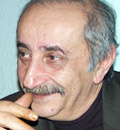 YSU docent, economist, Armen Yeghiazaryan said that Armenia is a “very interesting country”. There are sectors of economy, where the risk of business is very high. There the competition is normal. In those sectors, where is no risk and there is guaranteed business there are issues with competition. Such problems exist because in our country the Arabic-Russian model of economy prevails. This means that the business is within the government and the government is within business. “That’s why as any American would explain conflicts of interests originate. It’s when the businessman enters the politics in order to protect himself or people enter into the business sector to provide incomes for themselves. That’s the problem of Armenia, which is not quite obvious right now as the country develops pretty fast. However this is going to become an obstacle in 2010-2012. Why does business go to government? Because it’s going to be necessary at a certain moment. However some day it’s going to impede everything. For example, one of the greatest issues is that it costs very expensive to come to Armenia. Why? Because there is policy of “open air”, which our country doesn’t want to realize. Or for example why don’t we have the same gas companies as Georgia has (e.g. Shell). I want to say that there are fundamental issues, which must be solved by all means. And in any country fundamental issues are solved by the state,” mentioned Yeghiazaryan. Arsenyan didn’t agree with the opinion of the economist. “Armenia is not a black and white country. It has vivid colors. We have a lot. And there is no country in the world, where business wouldn’t crave for government. There is no country, which wouldn’t want to have influence on business. All we worry about is to what extent. We should try to give a deep analysis. Armenia is country, which is in transition period and it’s quite natural that during such a rotation numerous issues come up.” As number one issue Arsenyan mentioned people’s mentality. “We are a country that has been through socialists and now we are trying to overcome this transition. There is more responsibility now, isn’t there? It’s time to think how we can use the private property to have benefit. Under these circumstances not everybody has the capacity to be engaged in this. And then comes out the criticism element. Are we on the right route? Whether the state must mediate or not. Is the state too involved in economy? When we emphasize liberal market, we should first of all understand that the basis of such market is not the collective. It’s all about the individual. And we unfortunately are a collective society and are still in that phase. We must be able to change mentality and raise people’s consciousness. I think that this is the formula we must follow. We haven’t all changed yet. There is still long way to go,” mentioned Arsenyan in his speech. However he met an opposing opinion when speaking about people’s mentality.
YSU docent, economist, Armen Yeghiazaryan said that Armenia is a “very interesting country”. There are sectors of economy, where the risk of business is very high. There the competition is normal. In those sectors, where is no risk and there is guaranteed business there are issues with competition. Such problems exist because in our country the Arabic-Russian model of economy prevails. This means that the business is within the government and the government is within business. “That’s why as any American would explain conflicts of interests originate. It’s when the businessman enters the politics in order to protect himself or people enter into the business sector to provide incomes for themselves. That’s the problem of Armenia, which is not quite obvious right now as the country develops pretty fast. However this is going to become an obstacle in 2010-2012. Why does business go to government? Because it’s going to be necessary at a certain moment. However some day it’s going to impede everything. For example, one of the greatest issues is that it costs very expensive to come to Armenia. Why? Because there is policy of “open air”, which our country doesn’t want to realize. Or for example why don’t we have the same gas companies as Georgia has (e.g. Shell). I want to say that there are fundamental issues, which must be solved by all means. And in any country fundamental issues are solved by the state,” mentioned Yeghiazaryan. Arsenyan didn’t agree with the opinion of the economist. “Armenia is not a black and white country. It has vivid colors. We have a lot. And there is no country in the world, where business wouldn’t crave for government. There is no country, which wouldn’t want to have influence on business. All we worry about is to what extent. We should try to give a deep analysis. Armenia is country, which is in transition period and it’s quite natural that during such a rotation numerous issues come up.” As number one issue Arsenyan mentioned people’s mentality. “We are a country that has been through socialists and now we are trying to overcome this transition. There is more responsibility now, isn’t there? It’s time to think how we can use the private property to have benefit. Under these circumstances not everybody has the capacity to be engaged in this. And then comes out the criticism element. Are we on the right route? Whether the state must mediate or not. Is the state too involved in economy? When we emphasize liberal market, we should first of all understand that the basis of such market is not the collective. It’s all about the individual. And we unfortunately are a collective society and are still in that phase. We must be able to change mentality and raise people’s consciousness. I think that this is the formula we must follow. We haven’t all changed yet. There is still long way to go,” mentioned Arsenyan in his speech. However he met an opposing opinion when speaking about people’s mentality.
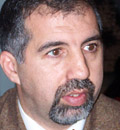 “We have the example of Georgia right next to us. I don’t think the consciousness of the Georgian policemen has changed and he had become more moral. There was just political will to resolve the issue. The policemen approaches a car pulled over on the street and in fact he doesn’t much care about the state of the driver. He just has an order and must do his job. Otherwise he has a lot to lose. If we wait for growth of mentality we will have to wait very long because the mentality of Armenians is not going to be improved so soon. We raise our children with our mentality,” said the director of “Apaven” company, Gagik Aghajanyan. Arsenyan insisted that the Western societies have managed to digest the philosophy of Hegel and Kant during 250 years and the Armenian society has been introduced to this philosophy only within 10 years. “During the last 100 years the Armenian society hasn’t thought about anything else but surviving. For that we need 30-50 years. We need new generations for that,” mentioned the ULP deputy. Manaseryan mentioned that during the five years, which he had lived in the US showed that the American is no more conscious than the Armenian. “Americans can rob their country in a worse way than Armenians,” thinks Manaseryan.
“We have the example of Georgia right next to us. I don’t think the consciousness of the Georgian policemen has changed and he had become more moral. There was just political will to resolve the issue. The policemen approaches a car pulled over on the street and in fact he doesn’t much care about the state of the driver. He just has an order and must do his job. Otherwise he has a lot to lose. If we wait for growth of mentality we will have to wait very long because the mentality of Armenians is not going to be improved so soon. We raise our children with our mentality,” said the director of “Apaven” company, Gagik Aghajanyan. Arsenyan insisted that the Western societies have managed to digest the philosophy of Hegel and Kant during 250 years and the Armenian society has been introduced to this philosophy only within 10 years. “During the last 100 years the Armenian society hasn’t thought about anything else but surviving. For that we need 30-50 years. We need new generations for that,” mentioned the ULP deputy. Manaseryan mentioned that during the five years, which he had lived in the US showed that the American is no more conscious than the Armenian. “Americans can rob their country in a worse way than Armenians,” thinks Manaseryan.
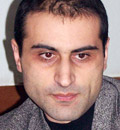 President of the “Economy and Values” center Manuk Hergnyan reminded the speakers that Armenia was included in the Global competitiveness report composed by the World Economic Forum two years ago. The report includes the ratings of 125 countries. This year, Armenia places 86th.
President of the “Economy and Values” center Manuk Hergnyan reminded the speakers that Armenia was included in the Global competitiveness report composed by the World Economic Forum two years ago. The report includes the ratings of 125 countries. This year, Armenia places 86th.
“On the average, this rating gives the country 4-5 years for economic development opportunities. So, if we take a look at the impressive temps of the GDP growth, that rating means that that growth will consume itself during the average period. There are nearly 97 indices and one of them refers to the competitive field. Armenia places 101st with its competitive intensity. Armenia is also in the last spots with its independence of the judicial system, which also has an influence on competitiveness. This is a diagnostic tool in order to see what our main issues are. But I think that it’s worth looking one step ahead, in other words, move from the diagnosis to the opportunities of finding the medicine,” said Hergnyan. Before moving forward, he proposed the following simple scheme-decide who does what.
“We must find out who is interested and who is more interested when forming a list. Who has the biggest potential for making the reforms? If we try to classify, I think everyone will know how that classification will look like. There are fields that are rather open (for example, information technologies or exports), yet there are other fields that you just can’t enter at all,” said Hergnyan. The latter also talked about the joint growth of business and politics. According to him, the ones in the current system with power are the least interested in reforming the system. The interested individuals are striving towards stability and independent reproduction.
“It’s obvious that we have to think beyond the borders and try changing the measures. Large trans-ethnic corporations are trying to play a game that the local companies aren’t playing. For example, “Marriot” or “HSBC”, which try to keep their rules of the game in each country and also try to adapt them to the local system. If we try to make that “corporative” bigger in Armenia, don’t you think that the rules of the game and the system will slightly change? What I am trying to say is that we shouldn’t look on the inside. Let’s also think about adding new players so that the field will broaden and have the rules changed as a result,” suggested M. Hergnyan. “If you listen to the functionaries, they claim that they care the most about improving the country. They say that they have the least amount of opportunities. As a deputy, I must say that we take in laws from different government bodies where there is one thing written: give authorities, power, and opportunity for everything to be fine. When we ask them why everything wasn’t fine, they say that wasn’t enough. There is only one thing that can contradict that-integration in international organizations, in particular, European integration. It has political and business components. The first is difficult to predict; we don’t know when Armenia will become part of the European Union. We as businessmen must bring the “Marriot”, etc. I personally have tried many times to bring serious organizations to Armenia and make a player out of them in the Armenian field, so they can change the atmosphere; their demands and resources are many. It’s one thing to have the Taxing and Customs bodies talk with the local producer, having the organizations talk with the producer is another. But the fact of the matter is that those organizations don’t come to Armenia,” said Badeyan. Hergnyan mentioned that trans-national corporations are not interested in the small Armenian market, rather the unique competencies, unique human potential and corresponding technologies in order to have Armenia turn into a base for those companies and export their products. “The potential of exports is in danger and this means that economy is turning into a consumer economy, which consumes and doesn’t export,” said Arsenyan. M. Badeyan once again referred to the need to have political will to solve the issues.
“The illnesses are clear and treatments are radical, conservative and sanatoria. There was nothing mentioned about radical treatment. I am not in favor of taking revolutionary steps; everything must be treated conservatively. But the disease won’t be cured by itself. How must we cure the disease? Today, there is no business class in Armenia, which can be the one giving social orders. Businessmen neither have a mission, nor give orders nor can they be controlled. The same goes for workers on salary. They can’t present their orders to neither the businessmen, nor the state. What we have is one class-the functionaries-which is rather arbitrary. How can we restrain the caprice of the functionaries? It can only be done by political will. This is one of the conservative treatments. The medicine must be given,” says Badeyan, certain that the “one taking on the political responsibility” must take on the role of the “doctor”. Tatul Manaseryan brought up a question: Where is Armenian economy “rolling” towards? He mentioned that no government or independent economist knows anything about current Armenian economy. The deputy suggested making a non-detailed inventory of the economy in order to have a correct image of the resources.
“I’m not saying that we have to control everything; however that is very important for the competitive market. But the government must also play its role and point the direction in which Armenia has to go. No country can expect to play a brilliant role in world economics if it is not integrated in the region. We are obligated. Armenia has become completely isolated. In that case, businessmen can also distinguish their places if they know where the economy is headed and how they are helping economic development,” mentioned Manaseryan.
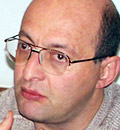 Director of the information technologies companies union Karen Vardanyan placed emphasis on the issue of state goals. “I think that currently, businessmen are the most active class with their production and largest amount of resources. So, businessmen must unite as one and bring up the issues to the government. The villagers or unemployed can’t gather and pressure the government. That will be the revolution of Tigran Karapetyan,” said K. Vardanyan.
Director of the information technologies companies union Karen Vardanyan placed emphasis on the issue of state goals. “I think that currently, businessmen are the most active class with their production and largest amount of resources. So, businessmen must unite as one and bring up the issues to the government. The villagers or unemployed can’t gather and pressure the government. That will be the revolution of Tigran Karapetyan,” said K. Vardanyan.
The debaters referred to the level of competitiveness in certain fields of economy. We were interested in finding out why there can be a monopoly in the sugar market and competition in the telephone and vodka markets. The answer was totally professional-sugar cane is a single product with no quality difference, while the rest are different products.
“Studies show that the concentration of such products principally has a good influence on prices. Well-known economist Joseph Schumpeter said that not in all cases is monopoly a bad thing,” said A. Yeghiazaryan. “If I enter the sugar cane market with a lot of money, then you can’t come in because I’m always going to buy the sugar cane at a cheaper price. But the state has to provide that I get my profit. It has to say, for example, sell at a price, which will exceed the average norm of my profit. In other words, I have to get super profit,” said Badeyan.
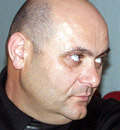 General Director of the “Multi Group” concern Sedrak Arustamyan mentioned that all the fields where his company is represented are competitive. He referred to Manaseryan’s proposed “inventory”.
General Director of the “Multi Group” concern Sedrak Arustamyan mentioned that all the fields where his company is represented are competitive. He referred to Manaseryan’s proposed “inventory”.
“Inventory has been done in all the fields where our company is represented, however I think that that would be a huge amount of work at the national level and don’t believe that anybody can do it,” said Arustamyan.
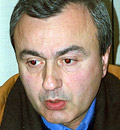 During the debate, information technologies were frequently considered as one of the “most open” fields of Armenian economy. General Director of “Synopsis Armenia” Hovik Musayelyan said that “Synopsis” has made a 600 million dollar investment for the technology sector in Armenia.
During the debate, information technologies were frequently considered as one of the “most open” fields of Armenian economy. General Director of “Synopsis Armenia” Hovik Musayelyan said that “Synopsis” has made a 600 million dollar investment for the technology sector in Armenia.
“The base for any development country is investment of technology. This is the field where 30-40% of the actual prices of the products require new technologies. Name the current fields of Armenia which spend money on “know-how”. Armenian businessmen currently aren’t ready for that, especially when they know that they will receive their dividends 10-12 years later,” says Musayelyan.
The gathered were interested in just how the government helps the Information Technologies sector, which has been declared as the supreme economic field of Armenia.
“The government mainly helps by not getting in our way. That’s a great achievement,” said general director of “Synopsis Armenia”. General Director of “Arminco” Andranik Alexanyan assured that their company is one of the first in the market that has made sure nobody monopolizes the market. Alexanyan also places emphasis on human intellect and believes that the government’s problem is to provide cadres.
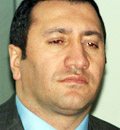 Since there were talks held on the current competition in alcoholic drink production, it was interesting to hear what founder of the “Great Valley” company and National Assembly Deputy Tigran Arzakantsyan had to say.
Since there were talks held on the current competition in alcoholic drink production, it was interesting to hear what founder of the “Great Valley” company and National Assembly Deputy Tigran Arzakantsyan had to say.
“When I started brandy production in 1998, the French were already ending their buy-and-sell transaction and couldn’t imagine that they would have a competitor,” said Arzakantsyan. According to him, his company has been in trials with the Yerevan Brandy Factory for five years. The businessman/deputy says that when the YBF began using the word “brandy” instead of “cognac”, “Great Valley” sales exceeded those of YBF. “After that, they started using all their connections in order to close “Great Valley” and remain the monopolist. We had customs-checked nearly two million dollars worth of products to send to Russia, but those weren’t our products. Upon the request of “Perno-Ricar”, they confiscated those products illegally. Even during Armen Darbinyan’s term, the government had gathered five people and made the decision. If I didn’t keep my business that time, it was also going to be a monopoly,” said T. Arzakantsyan. According to him, during those years, director of “Perno-Ricar” used to “take the French Ambassador by the hand and go to the president of Armenia” and complain about “Great Valley”. Currently, “Great Valley” and YBF have signed an amity contract, they have even created a brandy producers’ association and are fighting against businessmen who are producing “fake” brandy, exporting it to Russia and “lowering” the reputation of real Armenian brandy.
Consciousness, political will, interest, activeness of the business class, incorrect economic model and wrong economic development direction-these were the main points the speakers at the “Pressing” club were bringing up. The interesting thing is that they all accept the “diseases”, which characterize Armenian economy and create obstacles for the formation of the competitive field in Armenia. However, not all of them offered “prescriptions”, perhaps certain of the fact that first of all, the disease mentioned by Armen Yeghiazaryan in the beginning, must be “cured”. We think that deep down inside, Gurgen Arsenyan agrees with him.

